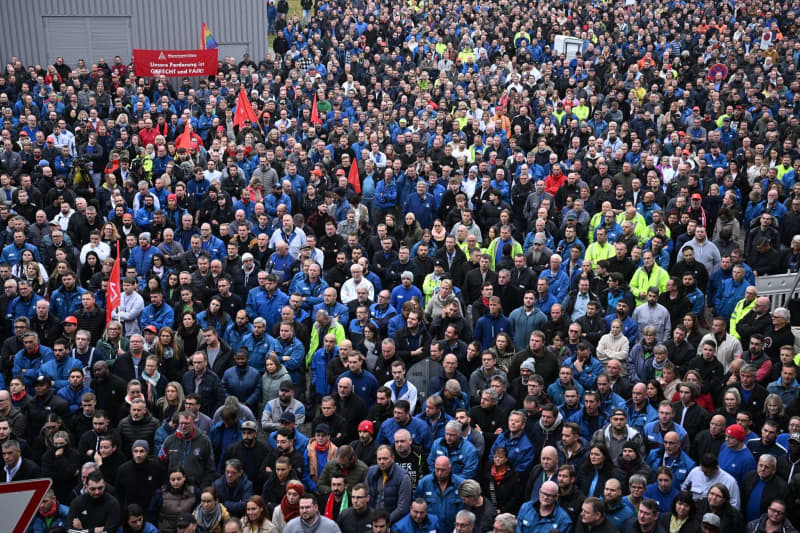Volkswagen (VW) is facing significant restructuring, with plans to close at least three plants in Germany and potentially cut tens of thousands of jobs, according to Daniela Cavallo, the leader of the firm’s works council. During an event for VW employees, Cavallo highlighted that all existing VW plants in Germany would undergo downsizing as part of a broader management strategy and indicated that the company is also considering across-the-board pay cuts. This news has generated intense opposition from labor leaders, including IG Metall, the trade union that represents the majority of VW’s plant workers. Cavallo warned that the management’s approach could lead to serious consequences, calling on VW executives to think carefully before proceeding with any drastic measures.
Workers at VW have expressed their outrage at the proposed cuts, with Cavallo vocalizing the anger and resolve of the workforce. She emphasized the importance of job security and the need for a comprehensive vision for the company’s future, rather than a piecemeal approach focused solely on cost reductions. The sentiments resonated with employees present at the event, who reacted with applause to her assertions. There is a strong sentiment among VW workers and unions that the management’s decisions could undermine the stability and legacy of VW in Germany, raising fears about potential strikes as early as late November in response to these issues.
The vulnerability of certain plants, particularly the VW facility in Osnabrück— which recently missed out on a crucial follow-up order from Porsche— is cause for concern. As both companies fall under the VW Group umbrella, the potential closure of the Osnabrück plant symbolizes a broader risk facing all VW locations in Germany, as Cavallo noted that no plant is currently secure from management’s plans. Additionally, the overall workforce is under threat, with speculations about massive layoffs and possible relocations of entire departments abroad, adding to the anxiety among employees regarding their job security.
In a significant shift, VW terminated a longstanding job security agreement in September that had been in effect for over three decades. This agreement had previously provided employees with assurances against layoffs, but its termination signals a stark change in the company’s operational approach. With approximately 120,000 employees in Germany—half working at the primary facility in Wolfsburg—these developments stem from a need to adapt to evolving market conditions, especially as the industry grapples with transformation towards electric vehicles and technological advancements. Thus, the framework for layoffs could potentially begin in mid-2025, making the present situation even more precarious.
The German government has urged Volkswagen to consider the implications of its decisions on workers and their families, sending a message that poor management choices should not escalate into worker unemployment. A government spokesperson emphasized Chancellor Olaf Scholz’s opinion that past decisions by management should not come at the cost of workers’ livelihoods. In response to the proposed cuts, negotiations between VW executives and labor representatives from IG Metall have been rescheduled for further discussions on collective bargaining. During an initial meeting, VW dismissed IG Metall’s demands for a 7% salary increase while advocating for significant cost-saving measures.
As negotiations progress, it appears VW is pushing for a deeper cut, proposing a 10% salary reduction and withholding any raises for the next two years. This has been met with resistance from union leaders who are demanding a constructive discussion around job security and the long-term viability of the company’s locations. The ongoing tensions signal a pivotal moment not only for VW employees but also for the broader German automotive industry, raising questions about future employment stability and the sustainability of traditional manufacturing locations amidst rapid changes in automotive technology and market dynamics.

